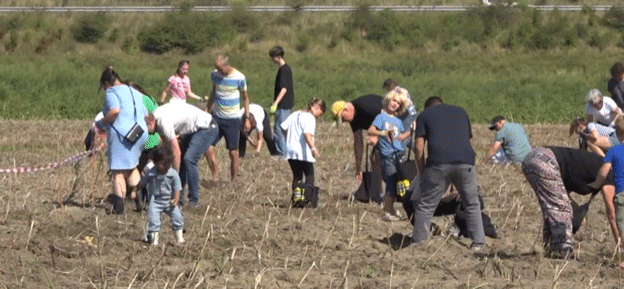For decades, potato farming has been a pillar of Dutch agriculture. However, recent developments in climate and consumer preferences are placing this staple crop under considerable strain. The growing unpredictability of weather patterns and the increasing salinization of soil are forcing farmers to rethink traditional methods. Yet, despite these challenges, innovative approaches and community involvement are giving potato farming a fresh boost.
Challenges Posed by Climate Change and Soil Salinization
Jan and Ben Ham, brothers running the Elisabeth Hoeve farm in Nieuw-Vennep, are among the farmers facing these new realities head-on. Their family has been farming for four generations, and they have witnessed first-hand how increasingly extreme weather conditions are impacting potato yields. Jan explains: “We now experience more frequent shifts between heavy rainfall and prolonged drought. This unpredictability is making it harder to maintain healthy crops.”
One of the major hurdles they face is soil salinization. Nieuw-Vennep, located in the low-lying Haarlemmermeerpolder, is particularly vulnerable to rising saltwater intrusion due to its proximity to the sea. The deep polders act like a drainage basin, pulling saltwater toward the surface and making cultivation even more difficult. According to Jan, “The salt levels in the groundwater are rising, and that’s becoming a bigger problem each year.”
Adapting Farming Practices for Success
To combat these challenges, the Ham brothers have been experimenting with different planting methods and potato varieties. By using more resilient strains and adjusting planting times, they’ve been able to mitigate some of the effects of erratic weather. These adaptations highlight a broader trend among Dutch farmers, who are increasingly turning to technological solutions and new crop varieties to stay ahead of the changing conditions.
Furthermore, the farm is also part of a broader movement to reimagine the cultural significance of the potato. Despite the rise of alternative carbohydrate sources, the Ham brothers remain committed to maintaining the potato’s role in the Dutch diet. Events like the Nationale Aardappelrooidag (National Potato Harvest Day) serve as both a marketing and community-building effort. Last weekend, they invited locals to harvest their own potatoes, with half of the yield being donated to food banks. The event allows participants to connect with the land, and as Jan puts it, “It’s about keeping the tradition alive, giving people a reason to appreciate the classic potato again.”
The future of potato farming in the Netherlands is far from certain, but farmers like Jan and Ben Ham are proving that innovation and community engagement are key to overcoming these hurdles. Through smarter farming techniques and efforts to reconnect the public with their food, the potato can remain a cornerstone of Dutch agriculture. However, continued investment in research and sustainable practices will be essential to adapting to the evolving challenges of climate change and soil degradation.







